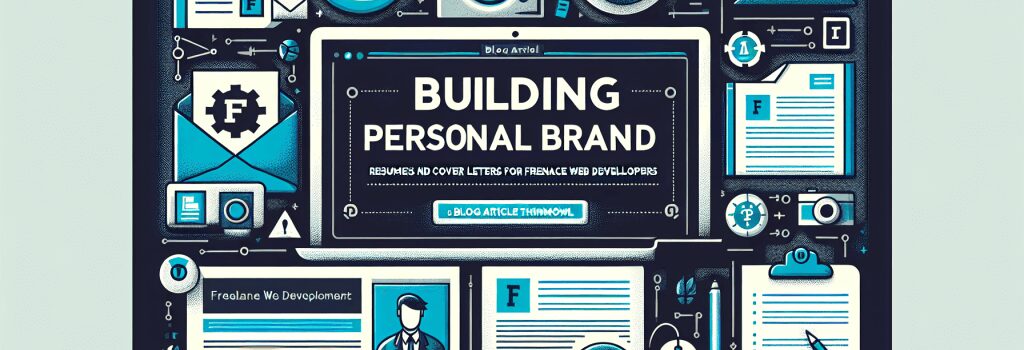Building a Personal Brand: Resumes and Cover Letters for Freelance Web Developers

Building an effective personal brand as a freelance web developer can significantly elevate your chances of catching the eye of prospective clients or employers. Your resume and cover letter are pivotal tools in this endeavor, showcasing your skills, experience, and, importantly, your individuality in the sea of competitors. Below, we delve into strategies to help you craft compelling resumes and cover letters that stand out, ensuring your personal brand shines through.
Crafting Your Resume
Highlight Your Technical Skills
Your resume should kick off with a strong profile section that emphasizes your expertise in HTML, PHP, CSS, JavaScript, and WordPress. Given the technical nature of web development, list your skills upfront. This not only makes it easier for HR managers to assess your suitability for a role but also helps in getting through applicant tracking systems (ATS) that filter candidates based on specific keywords.
Showcase Your Projects
A dedicated projects section is crucial. Each entry should succinctly describe the project, your specific contributions, the technologies used, and the outcome. If you’ve contributed to open source projects or have an impressive portfolio on GitHub, make sure to include links. For WordPress developers, detailing themes or plugins you’ve developed can be particularly compelling.
Tailor Your Experience
Instead of a one-size-fits-all approach, customize your resume for each application. Highlight experience and projects relevant to the job you’re applying for. Tailoring your resume shows you’ve done your homework and are genuinely interested in the role.
Writing Your Cover Letter
Tell Your Story
Your cover letter is where your personality and brand can truly come to life. Here, share your journey into web development, your passion for the craft, and how you keep your skills sharp. Remember, your cover letter should complement your resume, not restate it. Use this space to tell the story behind the facts listed on your resume.
Demonstrate Your Value
Select a couple of projects from your portfolio and dive deeper into how you tackled challenges, overcame obstacles, and delivered value. Be specific about the results—think in terms of performance improvements, user engagement metrics, or client satisfaction.
Speak to Your Freelance Experience
Freelance web developers need to emphasize not just their technical talents but also soft skills like time management, communication, and project management. Share instances where these skills helped you successfully navigate freelance projects.
Conclusion
The intersection of your technical capabilities and personal brand is where your resume and cover letter become more than just documents; they transform into your career narrative. In the world of freelance web development, standing out isn’t just about the codes you can write or the designs you can create; it’s about weaving your expertise and individuality into a narrative that compels someone to take action. Fostering a personal brand through your resume and cover letter isn’t a one-time effort—it requires consistency, reflection, and occasional updates to reflect your growing expertise.
Remember, these documents are your first impression. Make it count by crafting a resume and cover letter that not only showcase your skills and experience but also tell the unique story of your freelance web development career. With these strategies, you’re well on your way to building a personal brand that resonates with potential clients and employers alike.


